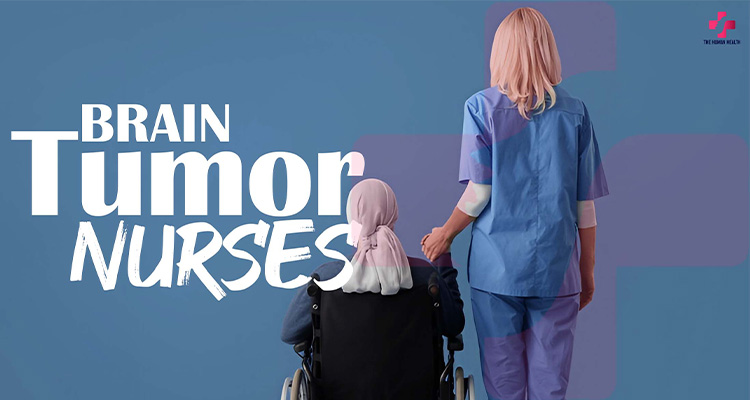Introduction
I still remember the first time I stood beside a patient with a brain tumor—it was humbling. You feel the weight of their fear, the hope in their eyes, and you realize just how much brain tumor nurses truly do. We’re not just giving meds or charting vitals—we’re holding hands in the dark, offering calm when the world feels chaotic.
If you’ve ever wondered what is a tumor in nursing? or how nurses manage something as complex as a brain tumor, you’re in the right place. This guide breaks it all down in plain English—no fluff, just real talk from someone who’s been there.
Whether you’re a nursing student, a curious caregiver, or just someone trying to make sense of it all, I’ve got you. Let’s walk through it together—and if you stick around, there’s even a free brain tumor nursing care plan PDF waiting for you at the end.
What Is a Brain Tumor? (Made Simple)
Let’s break it down. A brain tumor is a lump of cells that shouldn’t be there. These cells grow inside the brain and can change how it works. Some tumors grow slow. Others grow fast. But no matter what, they put pressure where they shouldn’t.
There are two kinds. Benign tumors are not cancer. They stay in one place and don’t spread. Malignant tumors are cancer. They grow fast and can move to other parts of the brain or spine. Both can cause problems, even if they aren’t cancer.
You might ask, “Is a brain tumor painful?” Sometimes. Not always. It depends on where the tumor is. Common signs are headaches, blurry vision, mood changes, or seizures. Some people feel dizzy or forget things. Others may act different without knowing why.
And yes, brain tumors can affect IQ. If they press on parts of the brain that control memory or thinking, it can change how someone learns or reacts. But with help, people can still live full, happy lives.
Wondering, “Is a 2 cm brain tumor big?” It depends on where it is. In some spots, even a small tumor can cause big issues. If you hear Stage 4 brain tumor, it means the tumor is growing fast and is hard to treat. In the end stage, care shifts to comfort and peace. That’s where brain tumor nurses step in with heart and skill.
I know this can feel like a lot. But don’t worry—we’re walking through it together. One step at a time. Simple. Clear. Real.
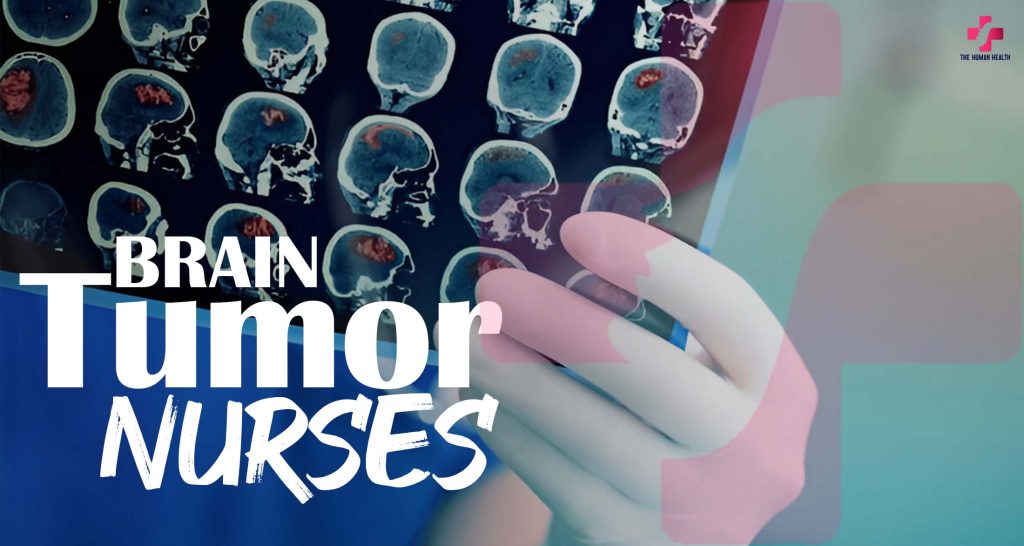
The Nurse’s Role: What Do Brain Tumor Nurses Actually Do?
Brain tumor nurses do more than you might think. They don’t just take vitals or give medicine. They’re there in the hard moments—calm, steady, and kind. They help people feel safe when nothing feels okay.
Every day looks a little different. Some days, they manage pain. Other days, they help with walking, eating, or rest. They watch for changes. They know when something feels off, even before the numbers do.
These nurses also care in quiet ways. They sit with patients who are scared. They explain things in a way that makes sense. They hold hands, share smiles, and listen without rushing. This kind of care means a lot.
They also work with doctors and families. They speak up for patients. They help make sure everyone knows what’s going on. This is a big part of nursing management of brain tumors—making sure care is clear, kind, and connected.
So when someone asks, “What is the nursing management of brain tumors?”—this is it. It’s the mix of heart, skill, and action. It’s about helping people feel seen, not just treated. That’s what brain tumor nurses do best.
Nursing Care Plans: A Beginner’s Breakdown
Let’s make this easy. A nursing care plan is like a to-do list with heart. It helps nurses care for people in a smart, kind way. When someone has a brain tumor, their needs can change fast. That’s why brain tumor nurses use these plans to stay one step ahead.
What Is a Nursing Care Plan?
A care plan starts with one big question: What does the patient need?
We watch, listen, and write down what we see. Then, we make a plan. We write out the problems, the goals, and the steps we’ll take. It’s simple once you get the flow.
For brain tumors, the nursing diagnosis could be:
- Pain from pressure in the head
- Weakness or trouble walking
- Fear, sadness, or memory loss
How Nurses Build the Plan
Here’s how we do it, step by step:
Step 1: Look and Listen
Is the person in pain? Are they tired, dizzy, or sad?
Step 2: Name the Problem
Write down what’s wrong. That’s your nursing diagnosis for brain tumor.
Step 3: Set a Goal
What do you want to happen? Maybe it’s “less pain” or “walk with help.”
Step 4: Take Action
Give medicine. Help them move. Explain things in a calm way.
Step 5: Check Back
Did the plan work? If not, tweak it. Keep going.
That’s it. You don’t need fancy words. You just need care, focus, and heart.
Key Goals for Brain Tumor Patients
Most nursing care plans for brain tumors focus on three big things:
1. Pain Relief
Tumors can hurt. Nurses give meds and offer comfort.
2. Mind Support
Brain tumors can change how people think or feel. We help them stay calm and feel safe.
3. Moving Again
Some people feel weak or dizzy. We help them stand, walk, or stretch—one small win at a time.
Want a full example? There’s a free nursing care plan for brain tumor PDF at the end of this guide. It’s yours to use, share, or study from.

Can You Work With a Brain Tumor? Real-Life Considerations
Let’s talk about something real. I remember a patient, Mark—a dad of three—who asked me, “Can I ever work again?” He’d just found out he had a 2 cm brain tumor. His job was physically demanding, and he was scared—not just about the tumor, but about losing his purpose.
The answer? It depends. Some people with brain tumors can return to work, especially if the tumor is small and found early. Others may need more time to rest and heal. Tumors vary—some grow slow, others grow fast. Some affect movement, speech, or memory. Others don’t.
Is a 2 cm brain tumor big? It can be, if it’s in the wrong place. Even small tumors can cause big issues, depending on their location. That’s where brain tumor nurses come in. We help people recover, step by step. We track changes, support rehab, and work closely with doctors to find the best path forward.
For some, that path includes going back to work. For others, it might mean a new rhythm—perhaps a different job or fewer hours. Nurses guide patients through this process. We cheer them on when they take that first step back to normal life, even if it looks a little different.
So, can you live a normal life after a brain tumor? Yes, many people do. It takes time, therapy, and support—but it’s possible. Brain tumor nursing care plans focus on pain relief, mental health, and mobility—because these things matter when you’re trying to get your life back.
And, is brain tumor a disability? For some, yes. It depends on how the tumor affects daily life. But a diagnosis doesn’t mean giving up. It just means doing things in a new way—and we’re here for that.
Brain tumor nurses walk with patients through every step. We’re part of the team that helps people not just survive, but live fully—no matter how tough the journey gets. Because life after a brain tumor is still life. And it’s worth living.
How Nurses Help at the End Stage
Let’s be real—this part is tough. When someone reaches the end stage of a brain tumor, everything changes. The goal isn’t to fix things anymore. It’s to bring peace. And that’s where brain tumor nurses step in with full hearts.
So, what is end stage brain tumor? It means the tumor has grown too much. It can’t be stopped. People may sleep more. They might stop eating. They could seem confused or not talk much. Breathing may slow down. These are signs the body is winding down.
Is a brain tumor painful? Sometimes, yes. But nurses know how to help. We give medicine to ease the pain. We fluff pillows, dim lights, and sit close. This is when nursing care for brain tumor becomes all about comfort.
But it’s not just about the body. It’s about the heart too. We support the family. I once sat with a woman whose husband was near the end. She asked me, “Can he still hear me?” I looked at her and said, “Yes. Your love still reaches him.”
That’s what brain tumor nurses do. We show up. We care in quiet ways. We speak gently. We give updates when needed. We make sure no one feels alone.
Even now, there’s a plan. A simple one. The nursing care plan for brain tumor at this stage focuses on:
- Keeping pain low
- Helping the person feel calm
- Supporting the family
Sometimes the best care isn’t in a chart. It’s in knowing their favorite song. Or tucking in their blanket just right. It’s the little things that matter most.
If you’re a nurse, a student, or a loved one walking this path—you’re not alone. These moments are hard, yes. But they’re also full of love.
At the end, nurses don’t just care. We honor. We bring light to the darkest days. And we do it with steady hands and soft hearts.
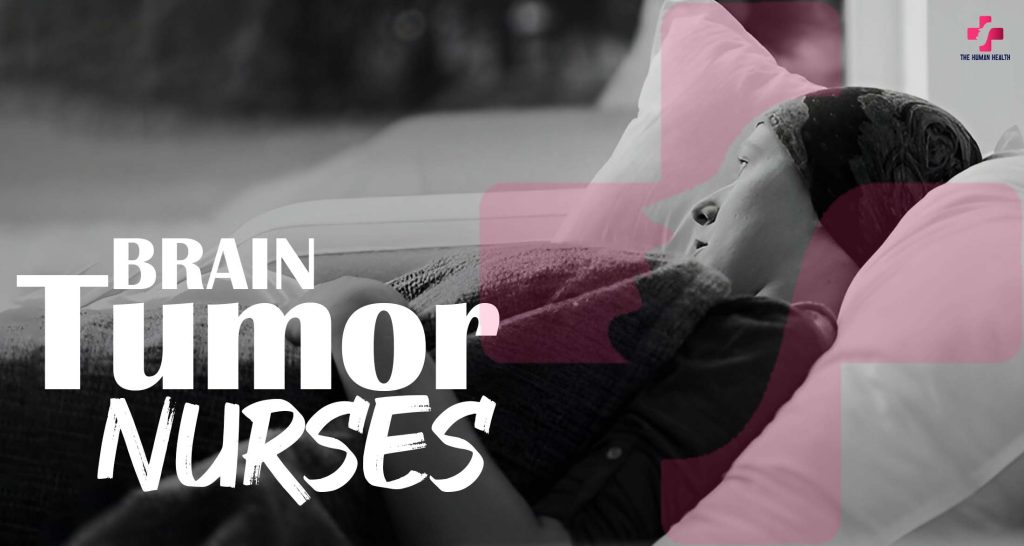
“Nurse Brain” and the Emotional Toll
Let me tell you something kind of funny. One night after a long shift, I stood in front of my fridge and forgot why I opened it. That’s nurse brain.
So, what is a nurse brain? It’s when your mind is always busy. You’re thinking about meds, vitals, care plans, and names—all at the same time. It’s not a medical term, but nurses get it. Especially brain tumor nurses. This job pulls at your brain and your heart.
Taking care of people with brain tumors is hard. There’s pain. There’s fear. Some patients forget things. Others get angry or sad. We use nursing care plans for brain tumors to stay on track, but the work is more than tasks. It’s about being there when it’s scary. Helping people feel safe. Making them feel seen.
You also need emotional strength. And a strong memory. But most of all, you need heart. You’ll notice when something feels off, even before the machines do. You’ll pick up on tiny changes that matter big.
Still, all this thinking can wear you out. That’s nurse brain, too. You go home tired. You forget simple things. You dream about charts and codes. (I do too.) That’s why self-care is key.
Here’s what helps me:
- Write it down. Your brain is full. Lists help.
- Talk to someone. Don’t carry it all alone.
- Rest. You’ve earned it. No guilt.
- Do something fun. Laugh. Move. Breathe.
Brain tumor nurses carry a lot. We help people when life is hard. We guide them through fear and pain. And we do it with skill and care.
But don’t forget—you matter too. Your rest. Your peace. Your joy. You’re not just a nurse. You’re a human. And you deserve care, just like your patients.
Ways to Avoid Brain Tumors: What We Know So Far
Let’s be honest—no one wants to think about brain tumors. But sometimes, the best way to feel less scared is to understand what we can do.
Can we totally prevent brain tumors? No, not yet. But we can lower our risk. Think of it like brushing your teeth—you can’t stop all cavities, but you can do a lot to protect yourself.
What We Know: The Real Risk Factors
Some things raise your risk. One of the biggest? Radiation to the head. Now, I’m not talking about your cell phone or the microwave—that’s a common worry, but there’s no strong proof. I’m talking about heavy medical radiation, like from certain cancer treatments.
Family history matters too. If brain tumors run in your family, your risk may be higher. Some rare conditions, like Li-Fraumeni syndrome or neurofibromatosis, also raise the chance.
So, What Can You Do?
Here’s where it gets real. We can’t control our genes. But we can take steps that help us stay healthy overall.
- Avoid harmful chemicals. Long-term exposure to some pesticides and industrial toxins might raise your risk. If you work around these, wear the right gear and be safe.
- Eat well. A diet full of fruits, veggies, and clean protein may help your body fight off trouble. There’s no magic food, but good fuel helps your system stay strong.
- Stay active. Exercise keeps your brain and body in sync. Plus, it helps your immune system stay sharp.
- Protect your head. Wear helmets when biking or skating. Serious head injuries might be linked to higher brain tumor risk later.
What We Don’t Know Yet
This part’s tricky. Scientists are still looking for clear answers. We don’t fully know why some people get brain tumors while others don’t. It’s not always about lifestyle or choices. Sometimes, it just happens—and that’s hard to accept.
So when people ask, “Are there ways to avoid brain tumors?”—the honest answer is this: We can lower the risk, but we can’t remove it completely.
And that’s why brain tumor nurses are so important. We can’t stop every tumor, but we can be there to catch the signs early. We help patients feel safe, supported, and seen. Whether it’s building a nursing care plan for a brain tumor or offering comfort during end-stage brain tumor care, we make a difference.
If you’re someone who wants to help—whether it’s through awareness, care, or even choosing this as a career—you’re already part of the solution. And that matters more than you know.
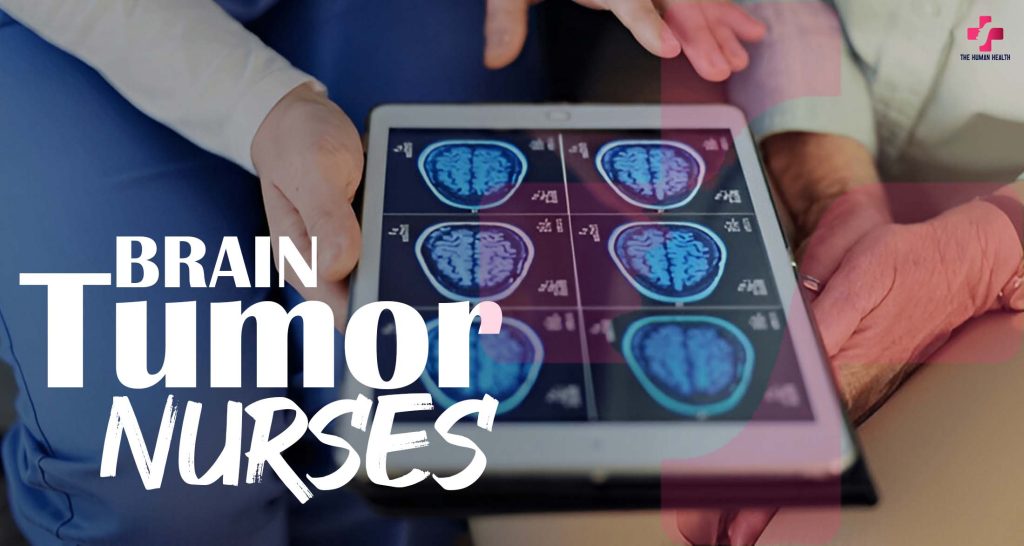
Meet the Real Heroes: Brain Tumor Nurses
When you hear the words “brain tumor,” your heart sinks. It’s scary, overwhelming, and full of unknowns. But in the middle of all that fear, there’s a special kind of person who steps in to help—brain tumor nurses.
These nurses are more than just medical professionals. They’re guides, listeners, and steady hands when everything else feels shaky.
What Do Brain Tumor Nurses Actually Do?
Let’s break it down. Brain tumor nurses do a little bit of everything. They…
- Help you understand your diagnosis
- Prepare you for surgeries and treatments
- Manage side effects from chemo or radiation
- Track your symptoms
- Support your emotional health
They’re there from day one and stick with you through the ups and downs. Whether it’s explaining a tough medical term or just sitting with you on a hard day, they show up—again and again.
What Makes Their Job So Hard (and So Important)
Taking care of brain tumor patients isn’t easy. These nurses often work long shifts. They care for people who are in pain, scared, or confused. Some patients might have trouble talking, remembering, or even moving.
But brain tumor nurses don’t just treat symptoms. They see the person behind the illness. They build trust. They learn each patient’s story. And that connection? It makes all the difference.
They’re Trained for This
Brain tumor nurses usually have extra training in neurology or oncology (that’s cancer care). Some even become nurse practitioners or clinical nurse specialists, which means they can help make care plans or prescribe medications.
They also work closely with surgeons, neurologists, therapists, and other team members to make sure patients get the best care possible.
How They Help Families, Too
It’s not just the patients who need support—families do too. Brain tumor nurses answer tough questions, offer a shoulder to cry on, and help loved ones understand what’s happening.
They teach caregivers how to help at home, what signs to watch for, and when to call the doctor. They give families confidence during a time when everything feels uncertain.
Care Plans That Actually Work
A nursing care plan is like a roadmap. Brain tumor nurses use it to track symptoms, set goals, and figure out the best ways to help. Here’s what that might include:
- Pain management
- Help with memory or speech
- Nutrition tips
- Fall prevention
- Emotional support
These plans aren’t one-size-fits-all. Nurses adjust them based on how each patient feels and responds to treatment. That personal touch? It matters.
In the End, It’s About Hope
Yes, brain tumors are tough. But brain tumor nurses bring something powerful to the fight: hope. They remind patients they’re not alone. They help people face each day with strength—even when it’s hard.
So if you or someone you love is dealing with a brain tumor, know this: There’s a nurse out there ready to walk with you. Every step of the way.
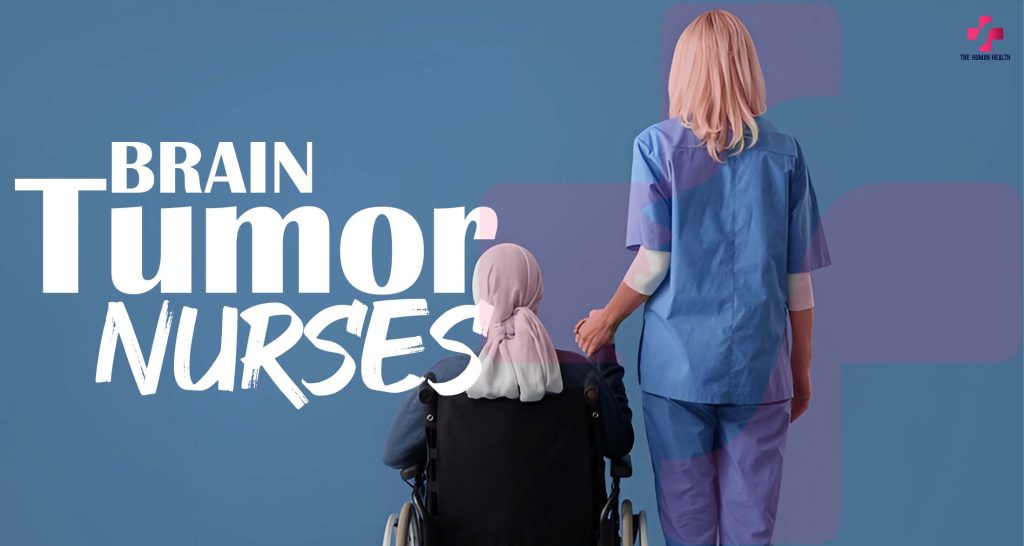
FAQs: Quick Answers to the Big Questions
Let’s keep this simple. These are the questions I hear the most—from patients, students, even family members. If you’re wondering too, you’re not alone.
What is a tumor in nursing?
In nursing, when we say “tumor,” we’re talking about an abnormal lump of cells. It doesn’t belong there, and depending on where it is, it can cause all kinds of symptoms. Nurses don’t just treat the tumor—they care for the whole person. We track changes, manage side effects, offer comfort, and explain what’s happening in ways that make sense. So yeah, tumors are part of the job—but people are always the focus.
What is a Stage 4 brain tumor?
Stage 4 is the most advanced stage. It usually means the tumor is aggressive, fast-growing, and harder to treat. I’ve walked with patients through this stage—it’s heavy, but not hopeless. At this point, the focus shifts from curing to caring. We manage pain, keep patients comfortable, and support the family every step of the way. The heart of nursing really shines here.
Can brain tumors affect memory or IQ?
Yes, they can. I’ve seen patients forget names, mix up words, or struggle with focus. It depends on where the tumor is in the brain. Some people bounce back with therapy, others need more long-term support. But here’s the truth—intelligence isn’t just about memory. Kindness, humor, and resilience? Those still shine through, even on the hard days.
What’s included in a nursing care plan for a brain tumor?
Oh, this one’s close to my heart. A brain tumor nursing care plan usually includes goals like:
- Managing pain (because tumors can cause pressure and headaches)
- Supporting emotional health (this journey is tough)
- Helping with movement or balance
- Watching for symptoms like confusion or seizures
It’s like a custom game plan, and we adjust it based on how the patient’s doing. If you’re curious, I’ve made a free brain tumor care plan PDF you can download at the end of this guide.
What is a nurse brain?
Ha—nurse brain is so real. It’s when your brain runs on overdrive from all the things we juggle: meds, vitals, patient stories, care plans, codes—you name it. I once put my phone in the fridge after a 12-hour shift. Classic nurse brain. But it’s also a kind of superpower. You remember the little things that matter big. Still, don’t forget to rest. You can’t pour from an empty cup.

Authorize Advisor
Linda M. Liau, MD, PhD, MBA
Brain and Tumor Neurosurgery| Neurosurgery
Professor and Director of the UCLA Brain Tumor Program. Dr. Liau’s clinical expertise is in intra-operative functional brain mapping and use of intra-operative imaging for resection of brain tumors (gliomas, meningiomas, and metastatic tumors). Her research efforts are focused on the molecular biology of brain tumors, gene therapy, immunotherapy, and brain cancer vaccines.
Phone : 310-825-5111 | Fax : 310-825-9385
Westwood Neurosurgery
300 Stein Plaza Suite 420, Los Angeles, CA 90095
Brain Tumor Nurses Brain Tumor Nurses Brain Tumor Nurses Brain Tumor Nurses Brain Tumor Nurses Brain Tumor Nurses Brain Tumor Nurses Brain Tumor Nurses Brain Tumor Nurses Brain Tumor Nurses Brain Tumor Nurses Brain Tumor Nurses
